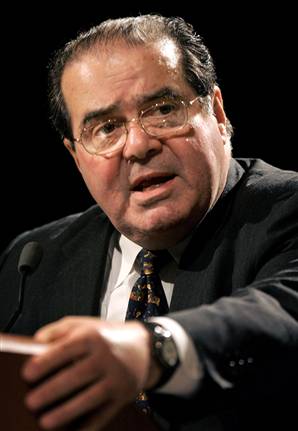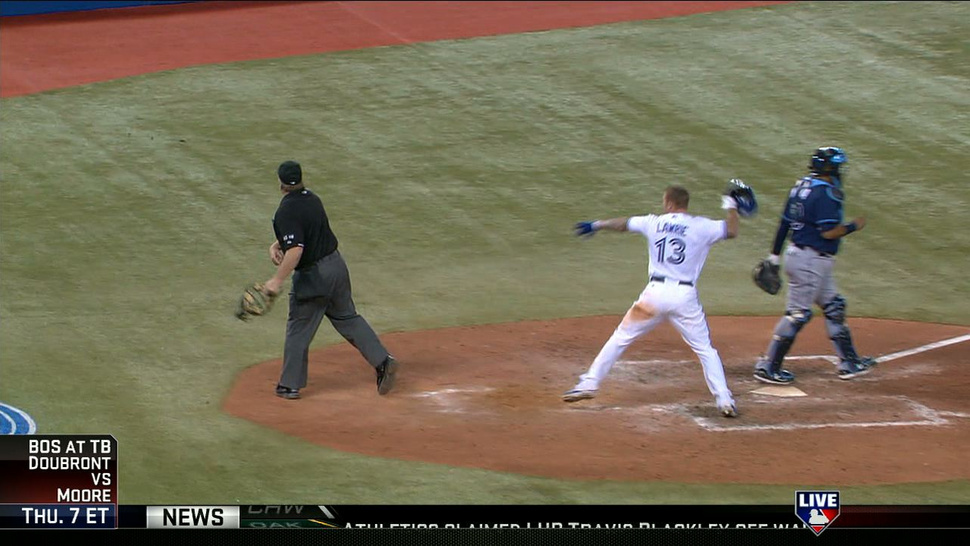 Justice Antonin Scalia decided to have some fun with a lawyer a couple days ago. By publicly humiliating him.
Justice Antonin Scalia decided to have some fun with a lawyer a couple days ago. By publicly humiliating him.
The crime that needed to punished? The lawyer, Steven Lechner, was reading his argument to the Supreme Court in Marvin Brandt Revocable Trust v. United States. It was his first appearance before SCOTUS. And Scalia didn’t like someone walking into his home to do that — to read.
Lechner began with the customary, “Mr. Chief Justice and may it please the Court,” and continued on for about a page in the transcript, when he was interrupted by Justice Scalia.
MR. LECHNER: It is axiomatic that the highest evidence of title in this country is a patent from the government. When the government issues a patent, it divests itself of title except for those interests expressly reserved. Here, the patent did not reserve any interest in the 1875 Act -
JUSTICE SCALIA: Counsel, you are not reading this, are you?
I feel his pain.
Lyle Denniston, writing at SCOTUSblog follows up with his personal observation after the judicial taunt:
Lechner didn’t answer, simply standing silent for a lengthy embarrassed moment.
Two points to make here.
First, it’s completely understandable that any lawyer appearing before the Supreme Court of the United States for the first time is going to be nervous. Very nervous. As in, it’s-hard-to-sleep-for-months-before nervous. That kind of nervous.
Anyone that’s tried cases or argued appeals, of course, knows this, albeit on a reduced scale. Performing in a local play isn’t the same as your first appearance on Broadway, but it’s enough to scare the bejesus out of most of us. You are about to walk on a high wire and there is no net. We desperately want something to hold onto, a crutch to grab, if you don’t mind me mixing my metaphors of Broadway, high wires and crutches.
The problem with this is that juries and judges hate it when you read to them. There is nothing in the world like the immediacy of eye contact. From a purely tactical standpoint, you don’t want to put your head down and read because it’s less effective. That’s why Presidents use teleprompters.
On those occasions when I must read, because I need to actually quote a piece of testimony, a line from a judicial opinion, or a statute, I will likely apologize for doing so in advance, thereby both keeping the attention of the audience and accentuating (I hope) the words being read.
The solution to the problem is not to take a speech to the lectern. Which is scary. But at that point, you know your case pretty darn well. A one-page outline of points to hit during your remarks should suffice.
Can’t make it fit to one page? Then get rid of extraneous words. Two to three words is all you are likely to need to remind yourself of the concept you want to address.
But there is a second point about this incident to make, and that is the abuse from Justice Scalia. While this may be his home court and he may be perfectly comfortable up their on the bench, he knows damn well that a rookie appearance before this bench will twist any rational soul up in nerves. He embarrassed someone merely because he could, because he wanted to. In the language du jour, he bullied him just for the sake of it.
Leaving aside his jurisprudence, there is a part of me that has a soft spot for Scalia ever since he gave my brother screenwriting advice on the issue of state secession, as well as for his writing ability. But this conduct was unacceptable.
More, elsewhere:
Oyez! Oyez!: Justice Scalia Confronts Lawyer Over Reading From Notes (Turley)
An Embarrassing Supreme Court Moment (Blog of Legal Times)

